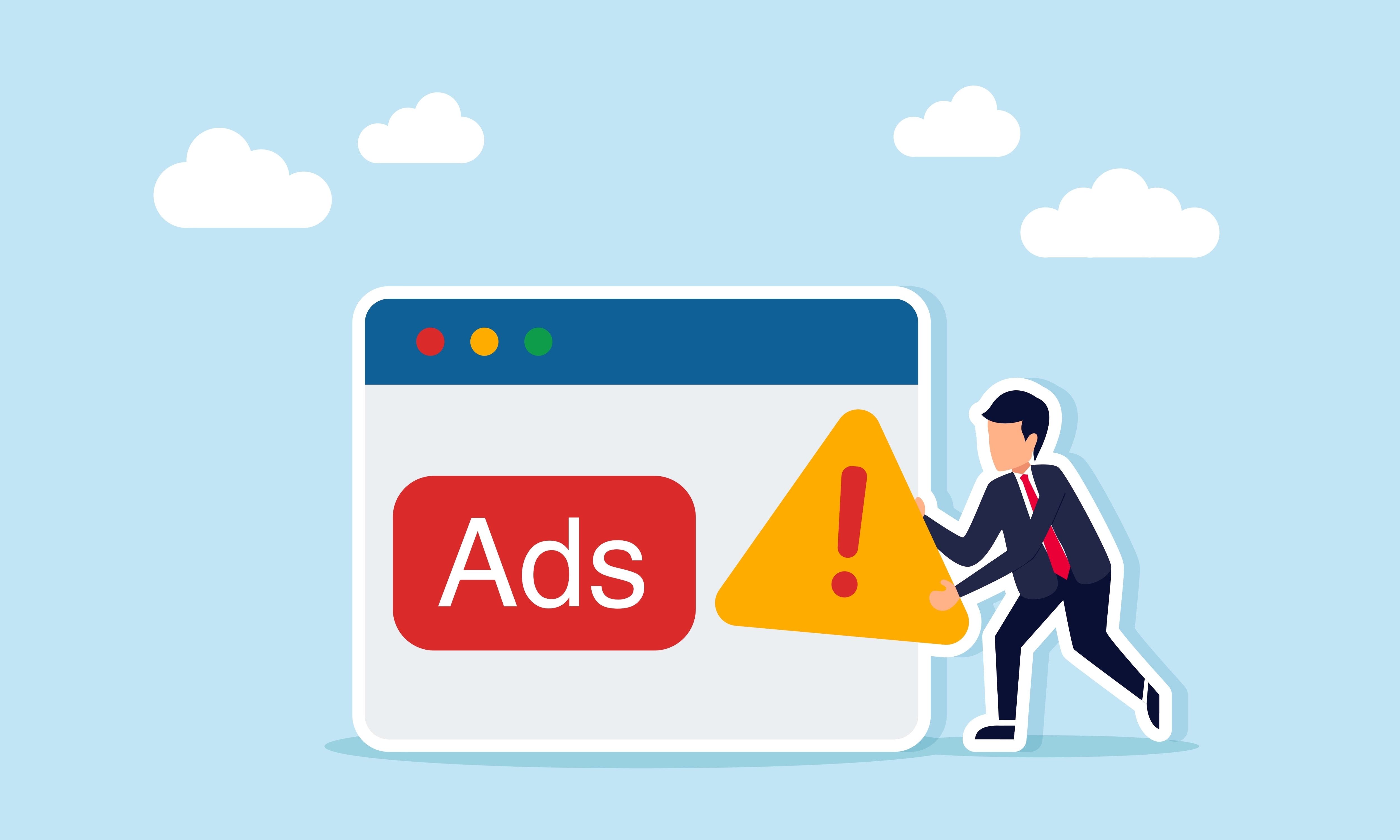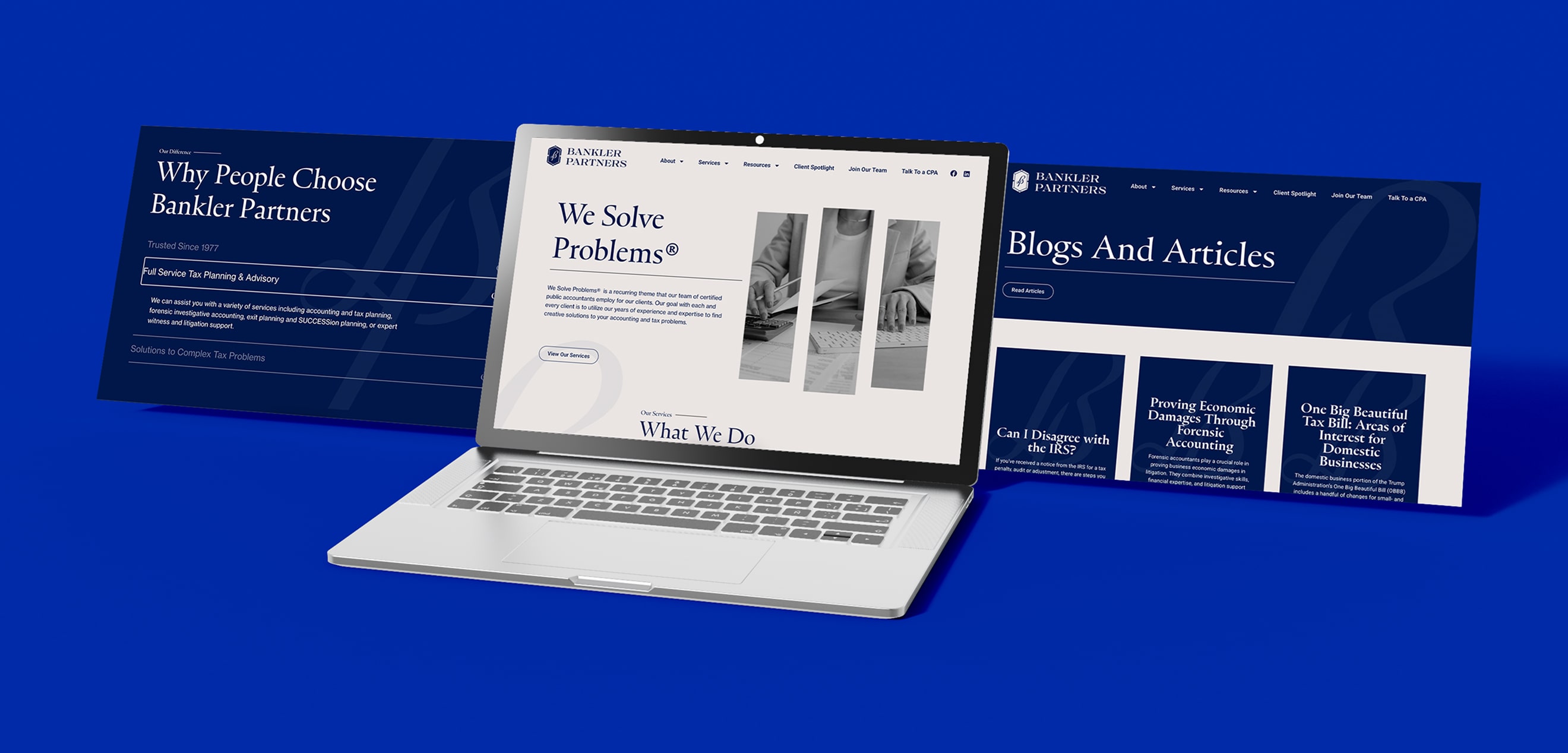Ideas Post
Should You Try to Rank for Your Own Brand Name?
Welcome to the great branded keywords debate, where logic, SEO strategy, and budget allocation all gather awkwardly at the same party.

Let’s say someone googles your brand. Should they find your website first? Obviously. But should you have to work for it? That’s where things get interesting.
Welcome to the great branded keywords debate, where logic, SEO strategy, and budget allocation all gather awkwardly at the same party.
If you're a growing business trying to figure out whether ranking for your own brand name is worth the effort or ad spend, you're not alone. It seems counterintuitive: Why would I pay to show up for my own name? Don’t I already own it? But when it comes to search engines, ownership isn’t always that simple.
Let’s break it down.
What Are Branded Keywords?
Branded keywords are search terms that include your company name, product names, or any variation of them. Think:
- "Tribu Creative"
- "Tribu marketing agency"
- "Tribu branding services"
These keywords suggest one thing very clearly: the person searching already knows who you are. That’s a hot lead. A warm croissant. A potential customer just waiting to be served.
Which is why it stings a little when you realize someone else might be trying to rank for or run ads against your name.
Why Bother Ranking for Your Own Name?
You may think it’s redundant, even wasteful, to optimize your site or run ads for your own brand. But here’s the reality:
1. Competitors Are Gunning for You
Let’s say you’re a local agency, and your competitor buys Google Ads against your name. Now when someone searches “Tribu Creative,” they see your rival first, above your organic listing.
Sneaky? Yes.
Legal? Unfortunately, yes (as long as they’re not pretending to be you).
Common? Very.
Owning your branded keywords, both organically and through PPC, means you control the first impression. You stop competitors from hijacking your name and possibly redirecting valuable traffic.
2. Google Doesn’t Guarantee Top Spot
You might think your website will always show up first when someone searches your brand name. But if your technical SEO isn’t up to par, or if your Google Business Profile is a little sleepy, you might be sliding into second or third place, under a directory or someone else entirely.
Search engines need strong signals. Clear metadata. Regular updates. Strategic linking. You have to give Google a reason to put you in the top spot, even when it’s your name.
3. Branded Clicks Are Cheap and Convert Like Crazy
In paid search, branded keywords are usually cheaper than non-branded ones. Why? Low competition and high intent.
These people already know you. They’re skipping the awareness stage and heading straight for action. Whether they’re looking to contact you, check a price, or find your services page, branded clicks are often the highest ROI clicks you’ll get.
When You Shouldn’t Go All In on Branded Keywords
We’re not saying you should pour your entire SEO and PPC budget into your brand name. That would be like building a moat around your castle but forgetting to expand your kingdom.
Here’s when it might not make sense:
- You’re the only game in town and there's zero competition (unlikely, but possible in niche B2B sectors).
- Your organic presence is already airtight, with no signs of encroachment from competitors, resellers, or aggregators.
- Your budget is razor-thin and you need to prioritize high-intent, non-branded keywords for lead generation.
In short, if no one else is trying to take that top spot and you’re already dominating it, then yes, feel free to pull back a little. Just don’t forget to check in regularly. That top position can vanish faster than a TikTok trend.
So... Is It Worth It?
Let’s bring it home:
- Should you rank for your own name organically? Yes. Absolutely. Always. Make sure your site is optimized, your brand name is in key metadata, and your content strategy includes occasional branded references.
- Should you bid on your name in PPC? Often yes, especially if competitors are sniffing around or you want full control of what people see when they search for you.
Think of branded keywords as reputation insurance. They protect your brand, reinforce your credibility, and make sure that warm leads land exactly where they should: on your doorstep.
Pro Tips for Ranking and Dominating Your Own Brand Name
Here’s how to keep your brand name safe, sound, and sitting pretty on Page 1:
Own all the real estate: Optimize your homepage, meta descriptions, social profiles, and Google Business listing. Bonus points for press mentions, directory listings, and YouTube content.
Don’t just rank, convert: Make sure the content people land on is built to close. Branded traffic is warm traffic. Treat it like it’s ready to buy.
Monitor brand mentions: Set up Google Alerts or use tools like SEMrush to see who’s bidding on your name or trying to outrank you.
Stay consistent: Use your exact brand name in title tags, headers, and image alt text. Consistency sends strong SEO signals.
Final Word: Branded Keywords Are Low-Hanging SEO Fruit
If you’re serious about growing your business online, ignoring branded keywords is like leaving your front door unlocked and wondering why a competitor keeps walking in.
These are the people already looking for you. Give them a red carpet, not a wild goose chase.
Want help building a search strategy that protects your brand and grows your reach? Let’s talk
Let's build a tribe together
Ideas, Ideas, Ideas
Featured Work
We don’t just deliver - we make a difference.
Here’s a look at some of our most impactful branding, web, and campaign work. These aren’t just projects - they’re proof of what’s possible when bold ideas meet the right tribe.












